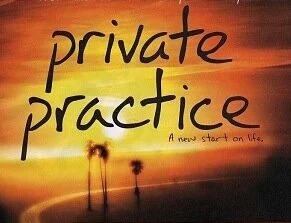-
By Anne Nonymous M.D.: If Abraham Maslow was a soon-to-graduate anesthesiologist from Stanford, his occupational hierarchy of needs would likely contain elements we are all vying for: a juicy salary, excellent benefits, generous
-
by Karen Sibert, MD: New research just out in the journal Psychology and Aging says pessimists live longer and healthier lives. If this is true, then contemplating the future of anesthesiology ought to make us immortal, because
-
by Adam Djurdjulov, MD: I vividly remember my last day of anesthesiology residency at Stanford. I had chosen to do my last month at the Valley, the county hospital where I could refine my skills across a wide range of cases
-
by “Blackjackdavey,” MD: “Those who can’t do, teach.” I recently heard this from an anesthesia resident on a sailing trip in the SF bay. It was a gorgeous sunny day with perfect breeze. The resident
-
by Allegra Lobell, MD: When you train in anesthesia, you train by the books, guided by ASA standards, under supervision, with someone’s eyes always watching you. There are advantages and disadvantages to this kind of
-
Let’s start with the big picture. What do you want from a job? Most of us want the same things: income, job security, professional satisfaction from delivering good patient care, and satisfying professional work environment.
-
When I was in private practice as an anesthesiologist, I had the chance to work at two different groups with different compensation structures. I want to talk about my experience with them and give you a better understanding of
-
by Ed Mariano, MD, MAS: Congratulations on finishing residency! Now that you have learned all there is to learn about anesthesiology as written in the textbooks, it’s time to learn (quickly) all the practical aspects of earning
-
One of the most commonly discussed topics with anesthesia residents – for me, at least – is whether being slick as an anesthesiologist is important in order to thrive in private practice. Most residents think






















